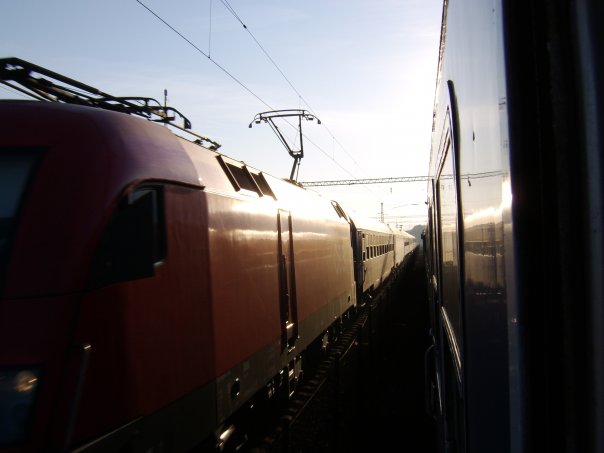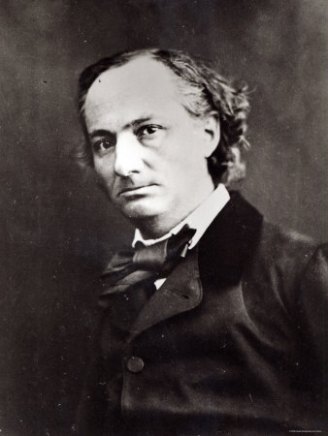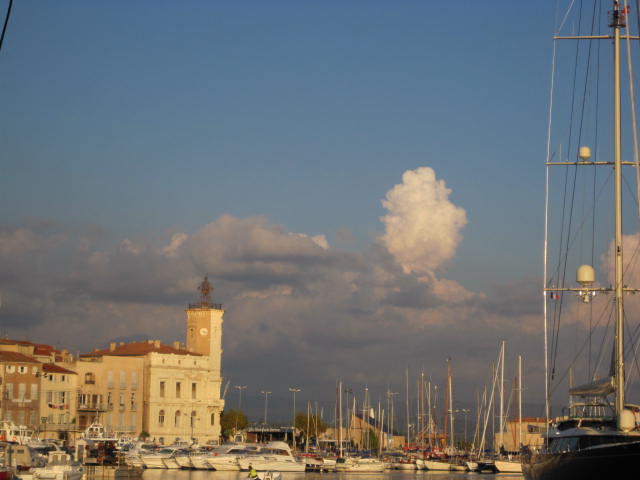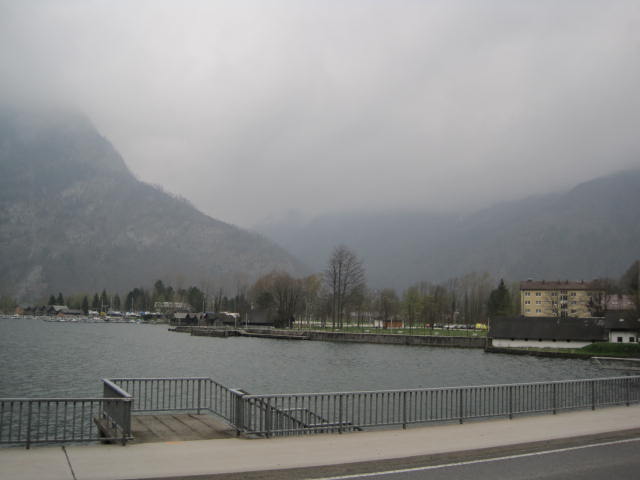Outside the Lidl in the center of town in La Ciotat, France, the birthplace of cinema, the town where I live and teach English at the local high school, a bum starts talking to me in German. It is just his luck that last year, I lived (and worked, teaching English in a high school) in Vienna. I know German. I respond. The rain comes down in faint sprinkles. I ask him if he has an umbrella.
He is drunk, I think, or in some sort of stupor that alcoholics get into when they’re constantly drinking. His name is Stefan. He thinks, for some reason, that I am Swiss. I explain I am not, but he forgets halfway through our conversation. He continues his rolling monologue of mantra, philosophy, confusion. He quotes the Bible. He sings Alpine folk songs. He asks me about myself.
I tell him I lived in Vienna…his friend is from Vienna! His friend–Fritz–comes over and quizzes me on Vienna. (I think I pass the test.) He tells me about his life: he served in the French Foreign Legion. He was honorably discharged, has a son and did have a girlfriend, but she kicked him out, and now he’s homeless. Same with Stefan. They’ve been living on the streets for 17 and 19 years, respectively.
Other Lidl customers come to give them money or talk to them. Stefan’s French is not so good, but Fritz has a good command of the language, albeit in a thick Viennese accent. Fritz tells me about how the doctors want to operate on his leg, but he doesn’t want any of it. It wouldn’t do any good. Today, tomorrow, ten years from now, he’s going to die anyway. He asks Stefan to pass the wine.
What amazes me most–and why I stay talking to them instead of ignoring them or running away–is that my German comes back to me in no time. The words just roll off my tongue. If my companions were completely sober, I think my non-native German-ness would be quite obvious. However, it doesn’t seem like they notice at all. It’s a profound and bizarre feeling. I consider, even after living in France for six months, speaking French still feels sometimes like setting my mouth up in a wrestling match against marbles.
Stefan tells me I have eyes like Cleopatra. He makes a dirty joke. I figure that’s my cue to leave, but then he says something profound. “Always think positively,” he starts. “God is in everything, after all.”
My horoscope said something today about meeting new people who would greatly impact the way I think. Chalk one up to astrology? Or coincidence.
Fritz says living in France, it’s not like Vienna. The people are colder, more antiquated, bureaucratic and unforgiving. They don’t see the humanity in others–what is all this about the French being so Cartesian, so adept at philosophy and deciphering human nature? Perhaps all that logic does make them unfeeling. The mayor of La Ciotat would rather get the homeless off the street at any cost to bring in more tourism than to see Fritz and Stefan working, in a home, in rehab. There’s no humanity, just dollar signs down here. “And it’s useless,” he continues, “because La Ciotat is never going to be able to compete with Saint Tropez. He’s defeated before he’s started, and we’re the ones who suffer.”
Fritz continues, quietly after his rant against the mayor. “Ich habe Heimweh. Du auch?” (I’m homesick, aren’t you?) I nod. I can’t decide whether or not my nod is facetious It’s strange to think, in my own foreign-ness, last year in Austria, I would have described Vienna the same way Fritz described La Ciotat. It’s amazing what a change of perspective can do.
Suddenly, there is a row on the street. Family doing the shopping has been double parked into their spot, with the ice cream melting and the bargain priced chicken thawing away in its insulated bag. Seeing as this is France, the owner of the double-parked car throws a hissy fit along with his wife, who throws a bigger hissy fit, since being double parked was his fault. Obviously.
I say my goodbyes to Stefan and Fritz, who both reply: “Man trifft sich immer zweimal im Leben.”
You always meet twice in life. There’s always an opportunity for a second chance. I walk home hoping, somehow, that this is true.
V.C. Weller © copyright




